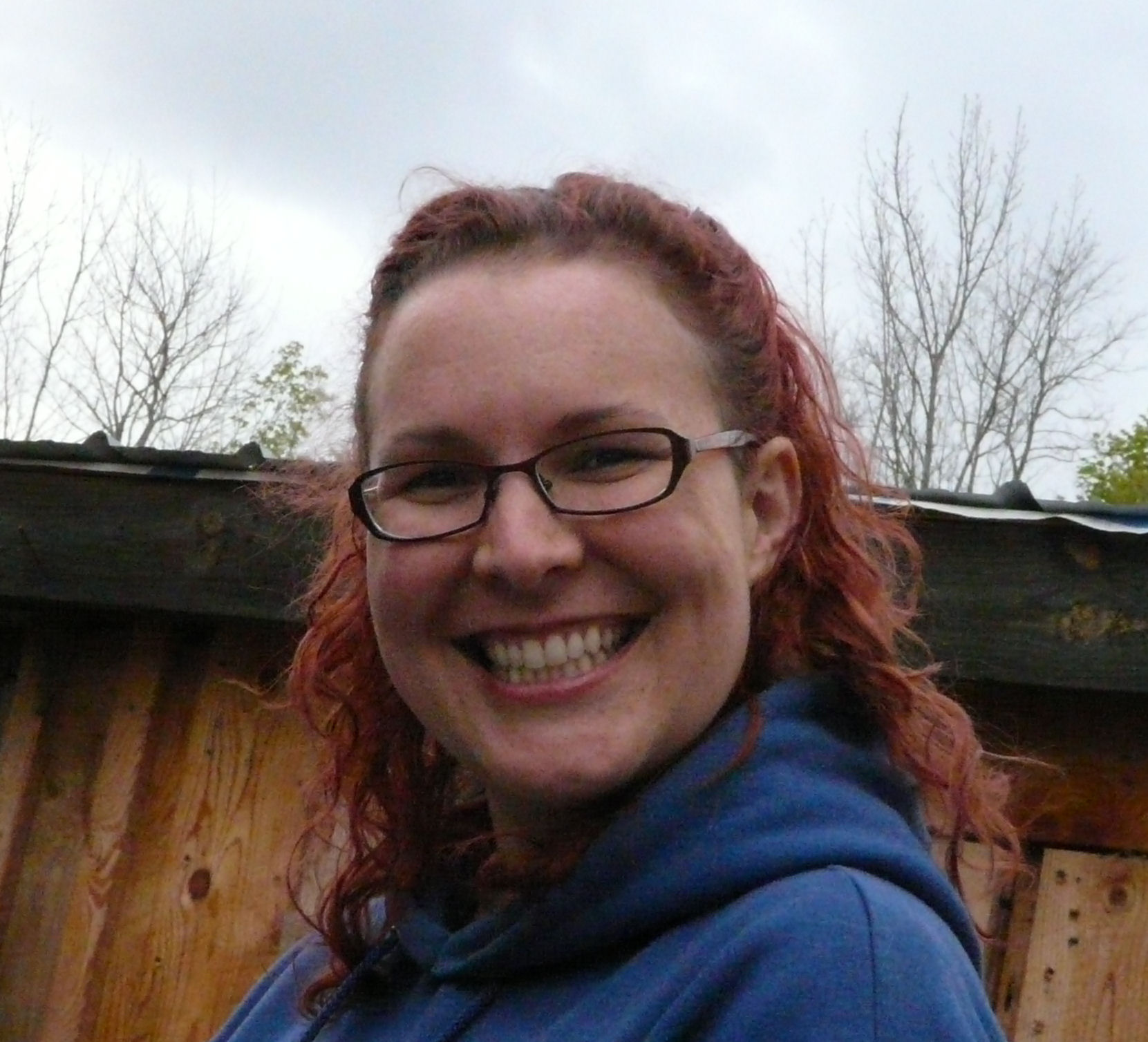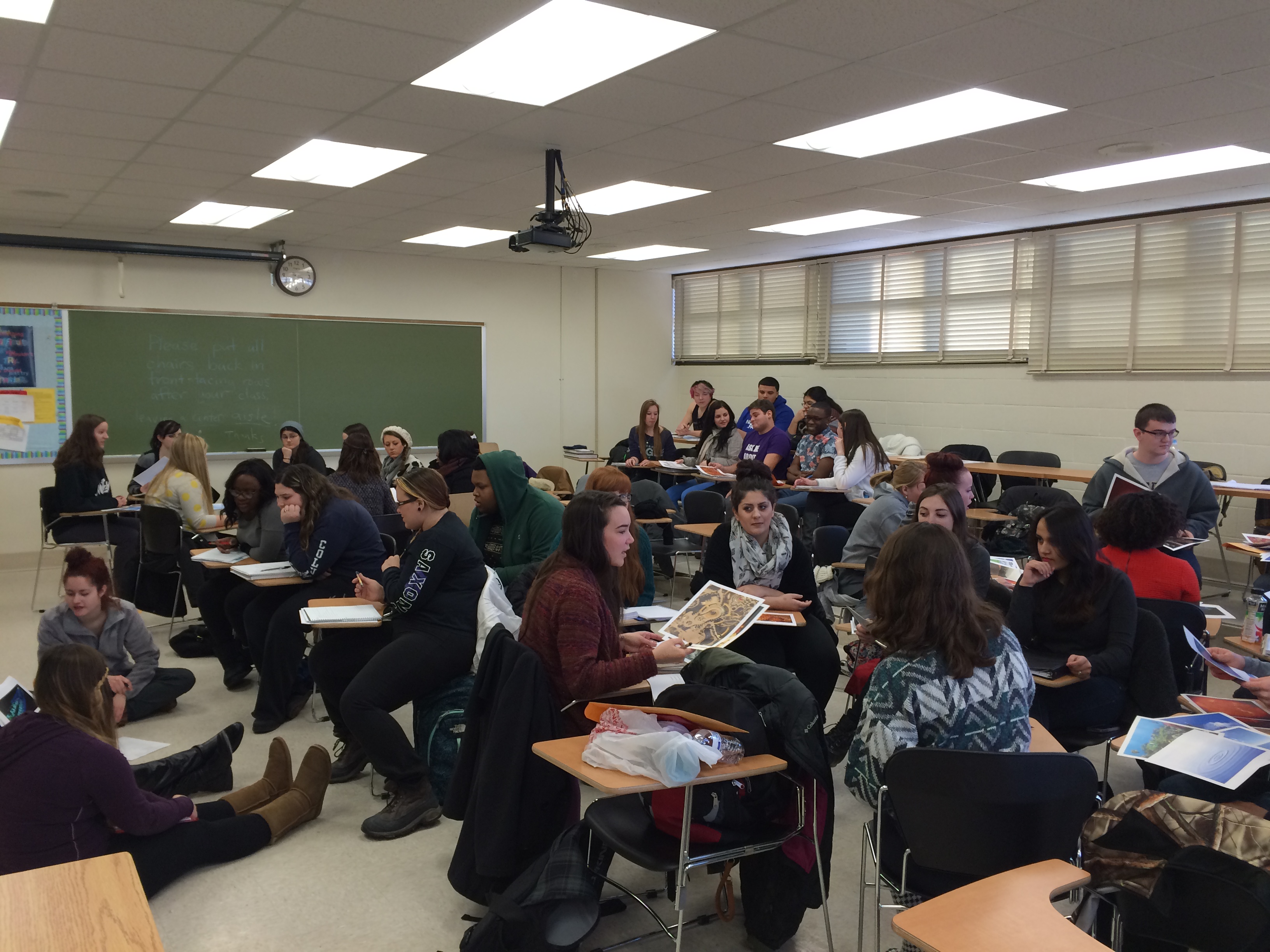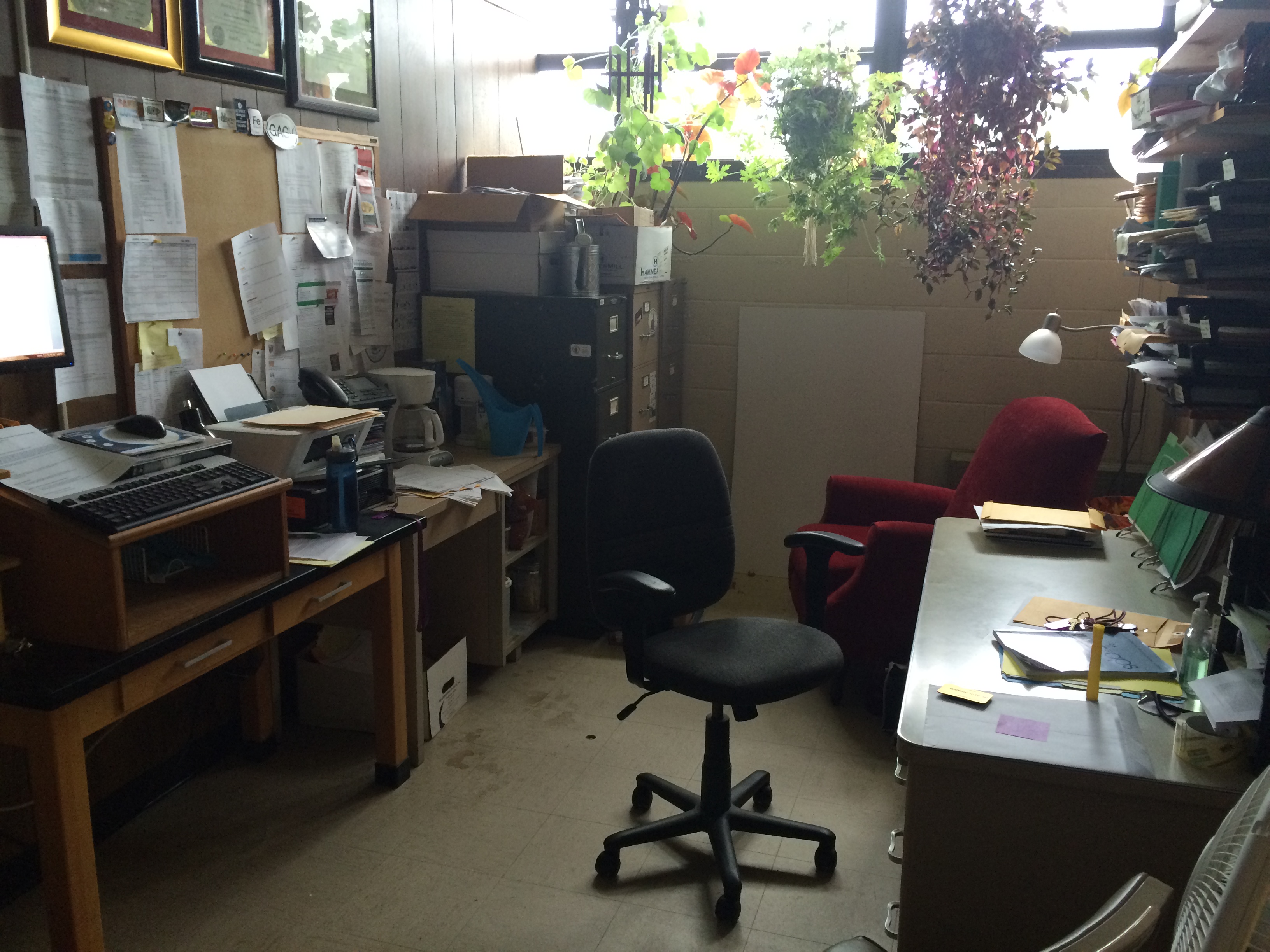 School name: Alfred University
School name: Alfred University
Type of school: Small private 4-year school, and I’m in the liberal arts college within the university
School locale: Very small town in a very rural area in Western NY
Classes you teach: Introductory Psychology, Social Psychology, Psychology of Gender, Human Sexuality, Principles of Learning and Behavior Modification, and Advanced Research Design and Statistics
What’s the best advice about teaching you’ve ever received?
“Begin as you mean to go on.” And then, its unspoken stipulation: Be sure to actually check that what you think you’re accomplishing is what’s actually happening, and don’t keep doing something that’s not working! I’ve learned the importance of making psychology concrete and useful to know outside of the classroom and after the semester has ended.
What book or article has shaped your work as a psychology teacher?I’ve gotten a lot of mileage from How We Learn: The Surprising Truth about When, Where, and Why It Happens, by Benedict Carey. I use so much of the material, both as subject matter in my classes, but also in the design of my classes themselves, that I finally just assigned the book for the students as a required text. The other books I’ve appreciated are How Learning Works: Seven Research-Based Principles for Smart Teaching, by Susan Ambrose, et al., and Don’t Shoot the Dog, by Karen Pryor. My day-to-day teaching and course design are becoming more dependent on behavior modification strategies as I go along.
Tell us about your favorite lecture topic or course to teach.
Any time someone asks me what my favorite ____ is, I struggle to answer because I have favorites sub-classified on different dimensions for almost everything. That’s not a very specific answer though. If you force me to nail it down, I will say that Introductory Psychology is my favorite, because it is a high energy, “best of” compilation that is always fresh and exciting because it’s the first time many of the students are exposed to the field.

Describe a favorite in-class activity or assignment.
I’m increasingly emphasizing metacognition and self-directed learning in my courses, because I have decided that learning how thinking works and how to learn will be more widely applicable to the majority of my students’ futures than just the topical content of any of my psychology courses. Only a small percentage of my students will continue with psychology past graduation, but all of them will need to know how to regulate and motivate themselves and understand what they know and how to effectively learn anything they want to know. We always talk about how psychology is an eminently useful field for people who are not psychologists, and in addition to having an understanding of psychology principles, we hope to produce critical thinkers and literate consumers. However, the idea of a “Users’ Manual” for the brain seems more and more attractive to me, and a nice approach to a liberal arts education.
One assignment I’ve developed in my Learning and Behavior Modification course to help develop these qualities is concept mapping how learning works. It’s a multi-part process: I started by breaking up the class into groups and giving them each a matching set of about 20 large color pictures. The pictures were of all kinds of things. The groups were required to sort the pictures into categories, with no fewer than 2 pictures in any category, and no fewer than 2 categories total. Once the pictures were sorted, they had to put them back together and sort them a new way. Then, again. They had to turn in a sheet with a list of the different dimensions on which they sorted the stack, and how many categories there were for each sorting. The fewest any group submitted was 10 sortings, and most had many more!
We then spent time talking as a class about the process and their answers, and I tied the exercise into a review of elaboration as a tool to improve the encoding of new information in memory. The students were amazed by how many different ways one can think about the same thing. The next phase of the assignment was to have each student begin creating a concept map of the “learning to learn” material we’d covered in the unit, following a short in-class tutorial on concept mapping. They began by creating a glossary of terms related to the concept. Then they had to sort their glossary a few times, to find the best dimensions on which to arrange the terms. The next step was to draft a concept map of their arranged glossary, which they had to show me for participation credit. The last step was out of class, required students to revise and re-do their concept maps, for which I supplied big pieces of paper, and I encouraged them to use creativity in color, symbol, placement, and connections to aid their memory and understanding of the concept. The students turned in their final concept maps, many with shining eyes and proud gestures, and I was blown away by the high quality of the work. Some of the best of the bunch AND the crummier ones were handed to me by students who grumbled that they’d never thought so hard about a particular unit, and they would never forget this damn map. That made me smile. I look forward to using this exercise again!
What teaching and learning techniques work best for you?
I try to use a lot of tools and techniques in every class, to mix things up and keep the class active. I use online, mastery based quizzing outside of class in some classes, and scheduled and pop quizzes in other classes. I use short video clips, games with competition and cooperative elements (and often some terribly cheesy prizes for winners), I assign a lot of reading, we do a lot of writing in and out of class, and I very much enjoy discussion and debates in class. I love using live demonstrations and simulations when possible, especially if it involves the whole class rather than a few volunteers. I often break students into pairs or groups for activities, especially in the large classes. Maybe it’s just easier to say that the teaching technique that works best for me is variety!
 What’s your workspace like?
What’s your workspace like?
My office varies in levels of paper-based bedlam over the semester, and the most critical pieces of equipment in it are the coffee machine, the computer, and the recliner. I made my computer a standing work station a couple of years ago (which I enthusiastically recommend), and so I have many different work modes available in the room. I also have a big cage (out of frame) for when my pet rats are at work with me, either for a guest appearance in class or just to be companionable.
Three words that best describe your teaching style.
Enthusiastic, engaging, and applied
What is your teaching philosophy in 8 words or fewer?
Using scholarly teaching, make psychology valuable for everyone
Tell us about a teaching disaster (or embarrassment) you’ve had.
I’ve long been emphasizing the importance of connecting the class material in any course to news and “outside world” situations (notice I didn’t go with “real world” there), and nowhere is that easier than in Social Psychology. In that course, I use what I’ve named Analytic Thinking Reviews (ATRs) to get students to write about how the material from each unit can be explicitly applied to a particular event or situation. The exercise has evolved over the last couple of years, but the first time I implemented it, I ran into a snag that absolutely blindsided me. That year (spring semester of 2013), for the unit on social cognition, I asked the question, “How do schemas and expectations influence our interpretation of events? Use these concepts to explain divided opinions over whether George Zimmerman’s killing of Trayvon Martin was racially motivated murder or justifiable self-defense. (Discuss both sides of the issue from a social psychological perspective, rather than relating your personal opinion.)” The students bent over their papers dutifully, but a couple of minutes passed before I realized I wasn’t hearing the scratching of pens at the same level as previous weeks. As I looked around the room, one student slowly raised her hand and asked, “Um, who are these people?” I stifled my reflexive, “Really?!?” and instead asked the class to raise their hands if they were familiar with this news story. Three people (out of 30-ish) raised their hands. I was then faced with the impossibility of relating the details of the event in a way that A) wouldn’t answer the question for them, and B) was anywhere near “objective,” seeing as many of those details are still in question. In subsequent semesters, I’ve changed the course component to begin with them getting the ATR at the beginning of each unit as a framing question, and I admonish the students to take time over the week to look up anything or anyone they’re not familiar with before it’s time to write their answers at the end of the unit.
What is something your students would be surprised to learn about you?
I use myself as an example for many things in class, so there aren’t many things my students haven’t heard about. Maybe they’d be surprised that, despite my cheerful comfort in the classroom, in the couple of weeks before every semester, I have “back to school” nightmares, where I dream that the first day of class starts in two hours and I haven’t made the syllabus, or I go to class for the first time and realize it’s the SECOND day of class, or I get told that I am suddenly assigned to teach a class I’ve never taught before and it starts in 5 minutes. The nightmares stop as soon as the semester actually begins, but it happens every semester, like clockwork. Sweaty, hyperventilating clockwork.
What are you currently reading for pleasure?
My summer reading is usually a mix of popular press psychology books (like Steven Pinker’s Sense of Style or Jeremy Dean’s Making Habits, Breaking Habits), which I mine for tidbits to bring to class, and a forgettable string of popcorn fiction involving adventure, romance, mystery, and suspense. During the school year, I stick with the popcorn; I read things that require my brain to participate enough during the work day.
What tech tool could you not live without?
At the risk of being unoriginal, my smart phone. It completes me.
What’s your hallway chatter like? What do you talk to colleagues about most (whether or not it is related to teaching/school)?
Around the corridors and office doorways, it ranges. My favorites are the conversations where I ask my colleagues for foreseeable pitfalls or clever improvements for this great new idea I just had for class, and the subsequent conversations where I crow about how well it went, or lament its crashing and burning. But we talk about everything, and often for longer than we had to spare for office chatter.
